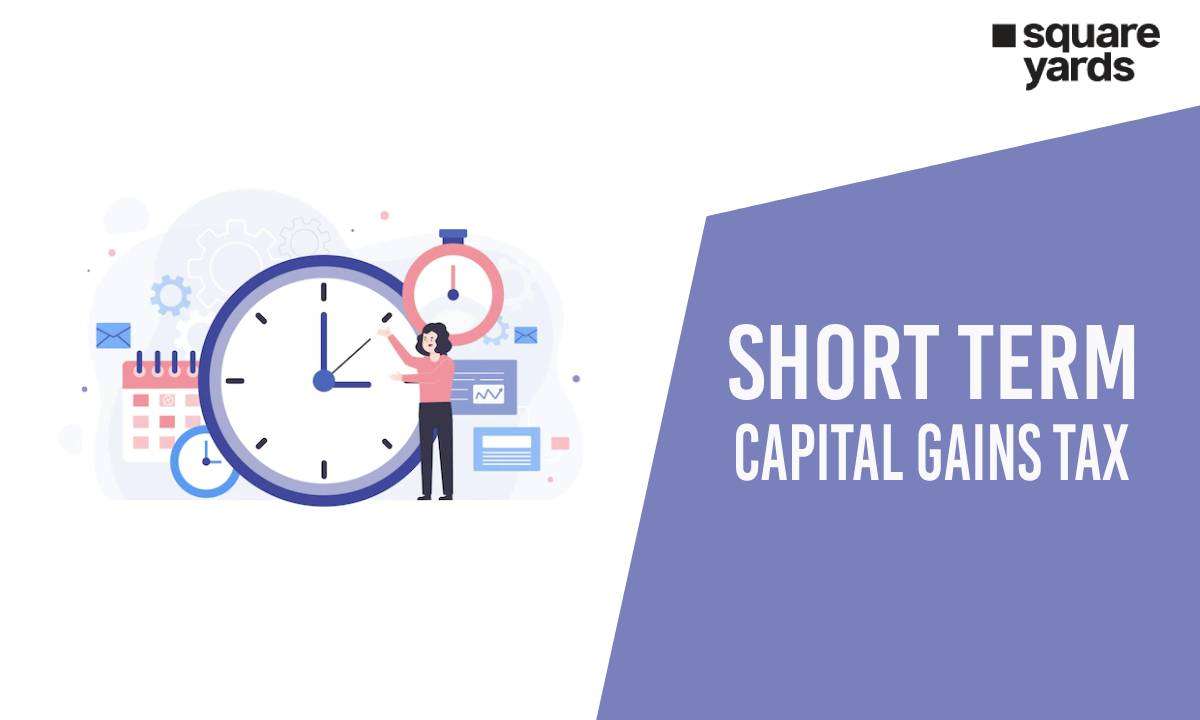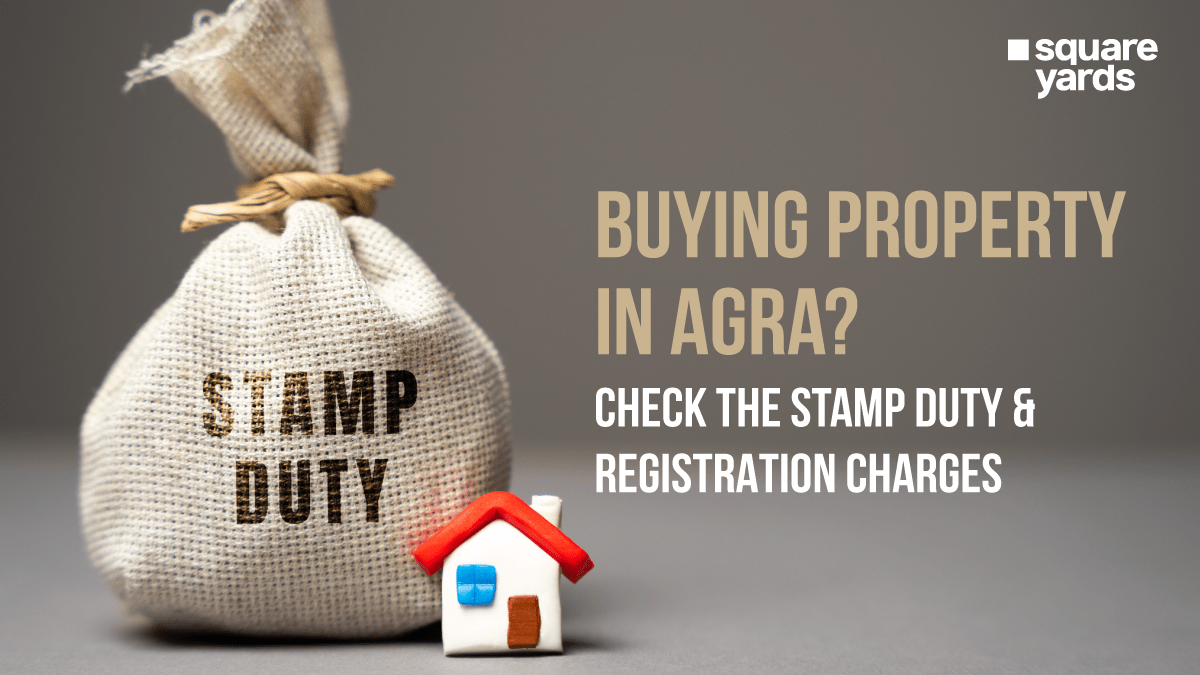Our daily lives are centered around wealth and asset creation in order to lead a more comfortable lifestyle. Wealth creation is a hard task and the end result is more often than not worth it. However, as citizens of the country, you are required to pay taxes on wealth and assets. Capital gains is the profit that is earned from the sale or transfer of a capital asset. Capital gains can be further classified into long-term and short-term capital gains. In this blog, we will take a look at the concept of short-term capital gains, types of capital gains, and more. Keep reading to know more!
Table of contents
- What is Short Term Capital Gains
- What are Short Term Capital Assets?
- How is Short Term Capital Gains Calculated?
- What is the Tax Rate on Short Term Capital Gains?
- Short Term Capital Gain Taxability
- Short Term Capital Gain on Securities
- Short Term Capital Gain on Property
- How to Avoid Short Term Capital Gains Tax
- Frequently Asked Questions (FAQs)
What is Short Term Capital Gains
A short-term capital gain can be defined as any income or profit that an individual earns from the sale or transfer of short-term capital assets. This also includes any profits made on the sale of any depreciable asset.
Example: Akhil acquired a building for Rs. 10 lakh, and one year later sold it for Rs. 15 lakh. In this regard, the short term capital gain is Rs. 5 lakhs.
What are Short Term Capital Assets?
Short term capital assets can be defined as assets owned by a taxpayer for a period of less than 36 months before the time of sale. For instance, if Akhil purchased the building in May 2018 and sold it in May 2019 after holding it for just one year, the building will be considered as a short term capital asset. In the case of capital assets like equity options listed on stock exchanges, the holding period is reduced to 12 months.
How is Short Term Capital Gains Calculated?
Some of the values that are taken into consideration while calculating short term capital gains are:
- Full value consideration of the asset.
- Acquisition cost.
- Improvement cost.
- Transfer cost.
Given below is the formula applied for the calculation of short term capital gain:
Short term capital gain = Full value consideration – (acquisition cost + improvement cost + transfer cost)
What is the Tax Rate on Short Term Capital Gains?
According to Section 111A of the Income Tax Act, any short term capital gains earned in the country is taxable at a rate of 15%. This includes any capital gains earned from the sale of equity shares, mutual funds, business trust units, sold on or after 1st October, 2004.
Short Term Capital Gain Taxability
Taking the above example into consideration, Akhil will have to pay tax on the profit of Rs. 5 lakhs earned from the sale of the building.
Any costs incurred for improvement or maintenance of the asset is not taken into consideration while calculating short-term capital gain and its taxability. In the above-given example, if Akhil had paid Rs. 50,000 to a broker during the sale, the short-term capital gain will be Rs. 4.5 lakhs, and tax will be calculated on this amount.
Short Term Capital Gain on Securities
Profits/Gains from equity options listed on stock exchanges in India and units of equity linked Mutual Fund investment scheme and business trusts are deemed to be short term capital gains as dedicated under Section 111A.
Short Term Capital Gains Tax Exemptions According to Section 111A:-
- Short term capital gains that are earned from the sale of equity options via unrecognised stock exchanges in India.
- Short term capital gains/profits earned from the sale of any shares other than equity shares.
- Short term capital gains earned from the sale or transfer of non-equity linked mutual fund schemes.
- Any profit earned from the sale of debentures, government securities or bonds.
- Any profit arising from the sale of immovable property, gold, silver, etc.
Short Term Capital Gain on Property
All sales of property are subject to short-term capital gains if the transaction is occurring within 3 years of purchase. The sale of inherited property is also subject to short-term capital gains taxation. However, any cost incurred for the maintenance or redevelopment of the property is not considered while calculating the tax liability.
The taxability rate on short-term capital gains is determined by the government in accordance with Section 111A of the Income Tax Department. Currently, the taxation rate is 15% minus cess and surcharge. Short term capital gains that do not fall under the scope of Section 111A, are categorised under normal short term gains and are taxed on the basis of the total taxable income of the assessee.
Short Term Capital Gain Tax Exemptions on Property
The deductions or exemptions regarding short term capital gains from the property are listed under Section 80C to 80U of the Income Tax Act.
Example: Suppose Mr Pillai acquired a property in Bangalore for Rs. 15,00,000 in 2012, and sold it in October 2013 for Rs. 25,00,000. He invested an amount of Rs. 1,50,000 in PPF and a further Rs. 50,000 in NSC. What is the total taxable income from short term capital gains?
Solution: Since immovable properties do not fall under the scope of Section 111A, Mr Pillai can claim tax deductions stated under section 80C to 80U. The total claim amount will be Rs. 2,00,000 (PPF + NSC). The calculation will look like the following:-
Short term capital gains from immovable property = Rs. 20,00,000 – Rs. 15,00,000 = Rs. 5,00,000
This is the gross taxable income.
Deductions stated under Section 80 C to 80U = Rs. 2,00,000
Taxable amount = Rs. 5,00,000 – Rs. 2,00,000 = Rs. 3,00,000
He will have to pay 15% of this amount with respect to tax on short term capital gains, this means that he will have to pay Rs. 45,000 as capital gains tax.
How to Avoid Short Term Capital Gains Tax
A taxpayer can avoid paying tax on short-term capital gains by making tax-saving investments in instruments issued by REC or NHAI in accordance with Section 54EC. However, the taxpayer will be required to invest this amount in bonds within 6 months of the date of the transaction. Further, the maximum investment amount for investment under this section is Rs. 50 lakhs for the financial year, the minimum holding period for such investments is 3 years. These investment options can come in handy if the value of the new investment is less than the capital gains earned from the previous investment.
You May Also Read
Frequently Asked Questions (FAQs)
How do i avoid short term capital gains?
An individual can avoid paying tax on short-term capital gains by investing in special tax-saving instruments as dictated in Section 54EC as issued by NHAI or REC.
How much short term capital gain is tax free?
The basic exemption limit for tax on short-term capital gains is Rs. 2,50,000 per annum for taxpayers aged below 60 years.
What is the short term capital gains rate for 2022?
If the terms and conditions of Section 111A are met then the capital gains tax is applicable at a rate of 15% in addition to surcharge and cess.













































